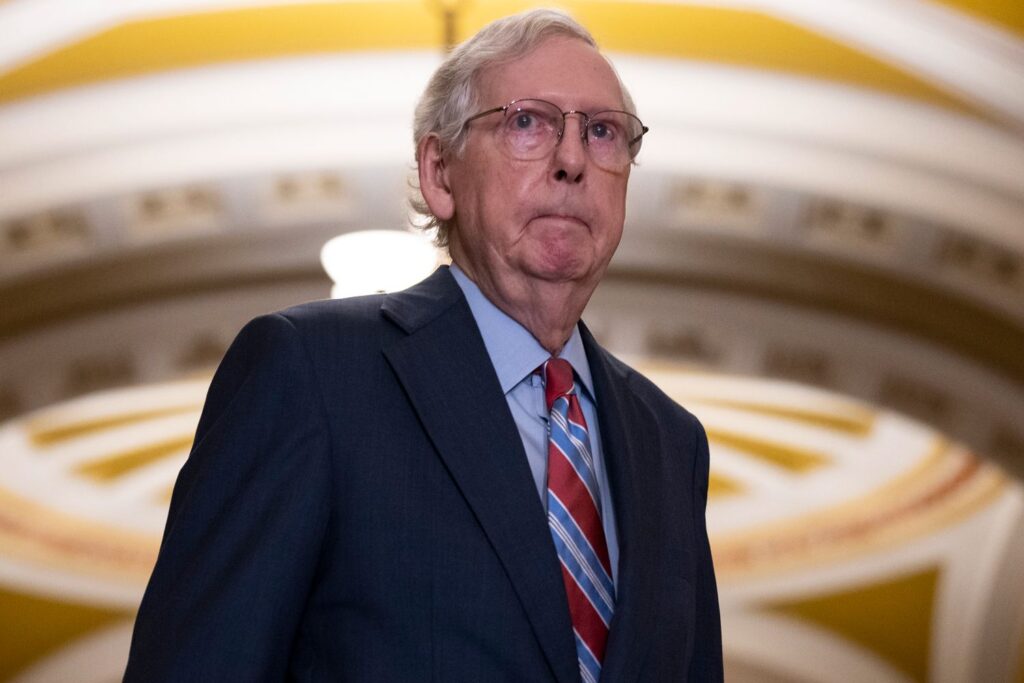Mitch McConnell, the prominent U.S. Senate Republican, declared his intention to step down from his leadership position later this year, drawing a curtain over a lengthy and influential tenure.
His decision relinquishes more sway to Donald Trump and the party hardliners who have shaped its identity.
At 82, McConnell, representing Kentucky in the Senate since 1985 and serving as party leader since 2007, expressed his resignation on the Senate floor, acknowledging the inevitability of time’s passage.
He stated, “Father Time remains undefeated. I’m no longer the young man sitting in the back hoping colleagues remember my name. It’s time for the next generation of leadership.”
McConnell’s nearly 17-year leadership tenure in the Senate stands as a record, marked by his nickname “Grim Reaper” for his adept use of power to thwart Democratic initiatives.
Despite personal reservations, he played a pivotal role in fortifying Trump’s conservative influence on the Supreme Court, resulting in significant rulings on abortion rights and gun laws.
Acknowledging his departure, McConnell emphasized his commitment to serving out his Senate term until January 2027.
However, his decision to step down from leadership underscores a transition from his steady stewardship to the unpredictable dynamics of Trump’s resurgence within the Republican Party.
With McConnell’s exit, the Senate Republican leadership landscape faces uncertainty.
Potential contenders like John Thune, John Cornyn, and John Barrasso may vie for the top position, amid pressure from conservative factions aligned with Trump.
McConnell’s departure coincides with Trump’s resurgence in Republican politics, prompting speculation about its timing.
While some hardline Republicans hailed McConnell’s decision, urging an immediate leadership change, others, like Senator Rick Scott, voiced aspirations for a different leadership approach.
McConnell’s estrangement from Trump, particularly over the 2020 election claims and the Capitol riot aftermath, underscores the evolving dynamics within the Republican Party.
His legacy, marked by strategic maneuvers in Supreme Court appointments and legislative battles, remains a subject of intense debate and criticism.
In his final remarks as leader, McConnell reiterated his support for crucial aid packages and acknowledged the shifting political currents within his party.
As he prepares to pass the torch, McConnell leaves behind a complex legacy that reflects the enduring tensions within the Republican Party.
